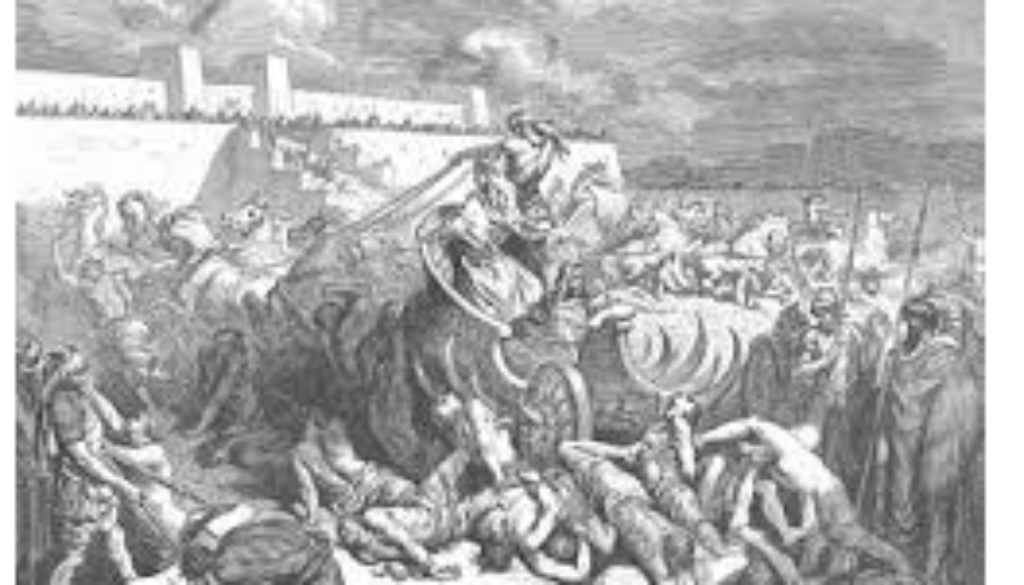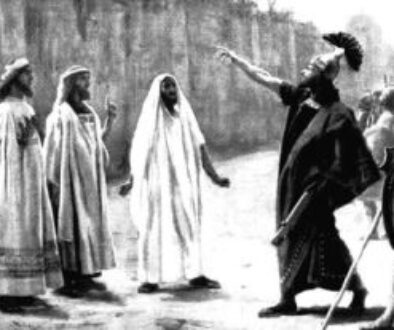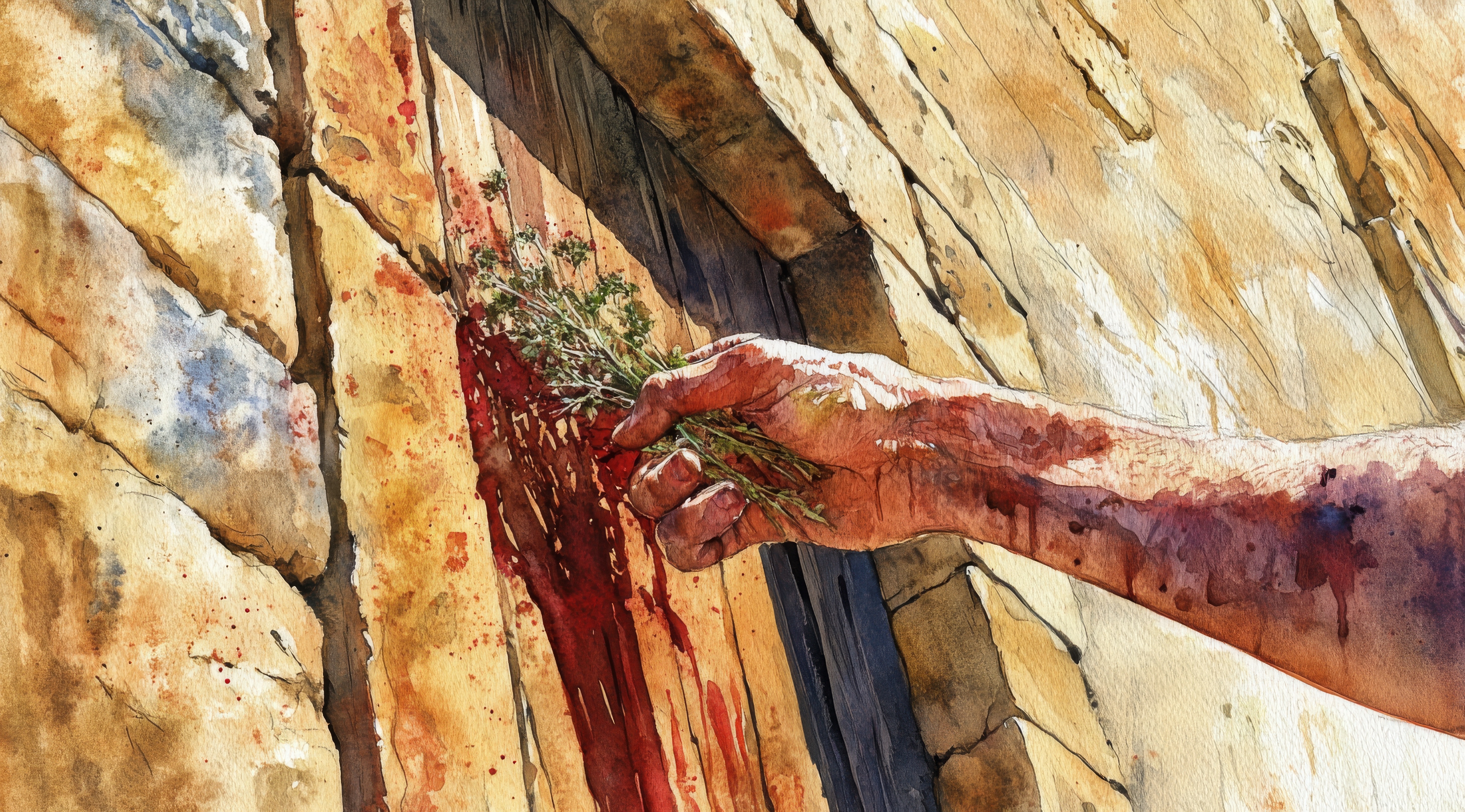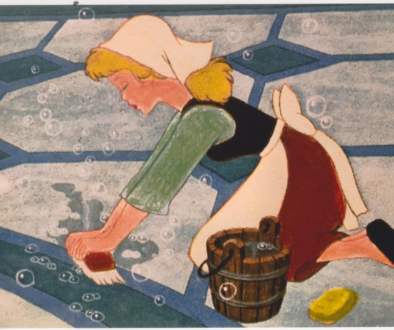1 Chronicles 20:1-3 Rabbah Falls
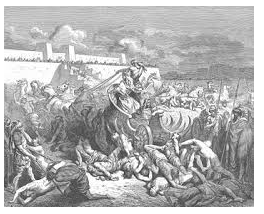
Hanun escaped capture and retaliation the first time Joab attacked but his freedom didn’t last. Joab and David’s army came back and Hanun paid with his life.
This battle spans a much longer time than our short reading shares. The battle for Rabbah is the same battle where David had Uriah the Hittite meet his death. The story of this battle and all that surrounded it is told in 2 Samuel 11-12. It is unclear if the events concerning Bathsheba ALL occurred while this battle raged on or if the information concerning her and the two children she bore David, discussed in the two chapters of 2 Samuel, are included in these chapters for continuity of her story sake alone.
We are not told how long this battle and conquest took. I would say a minimum of two months. David needed time to woo and bed Bathsheba, for her to realize she was pregnant, and for Uriah to be murdered at David’s command. It also lasted long enough for David to be summoned to its conclusion. Hanun did not go down easy.
Joab didn’t satisfy himself with just the city of Rabbah. “Joab led out the army and ravaged the country of the Ammonites” (verse 1b). Rabbah was the last stop on his campaign. Maybe he saved the hardest for last. It was after all the capital city. And our reading today gives the credit to Joab for the toppeling of it. Second Samuel gives David the credit. Joab summoned David for the last hurrah saying that if he didn’t come Joab would take the city and rename it after himself.
David wanted credit for this victory. He wanted to look Hanun in the face when he was taken prisoner. He wanted to be the one who took the crown from his head. Thanks to Joab’s summons, David got to experience his desires.
I’m curious here about the crown. Both accounts of this battle make mention of the crown, its weight and the jewel it contained. Was this crown much more significant than the crown David wore? Was its design and weight more than other crowns from other conquests? We are told that it was “placed on David’s head” (verse 2b). Was this done in front of the Ammonite people so they would see David as their new ruler or was it done before the Israelites? Did David keep this new crown as his own or did he put it in with the spoils that were dedicated to the Lord?
David finished off the kingdom of Hanun by making his subjects subject to David. All the Ammonites became forced labor for Israel. They paid dearly for their king’s arrogance. They could have continued as friends with Israel but Hanun wouldn’t hear of it. He paid the price and so did his nation.
There is a price for sin and actions have consequences. Hanun didn’t think about might happen. He thought he knew what the outcome would be. He thought he would best David in any situation. He forgot, or counted out, David’s God. Satan tries to convince his people to forget about God too. They will be MORE than sorry if they follow his example; just as the Ammonites were sorry for following their king in the end.
Father God, thank You for providing the right examples for me. I don’t always think of all the possible consequences before I act but I try to keep my conduct pleasing unto You. That way whatever ‘consequences’ that might arise would be good ones. I know I fail in this at times too. THANK YOU for being there for me to soften the consequences I set in motion and to forgive me my sins that brought them. Let me remember this lesson for the rest of my life.

